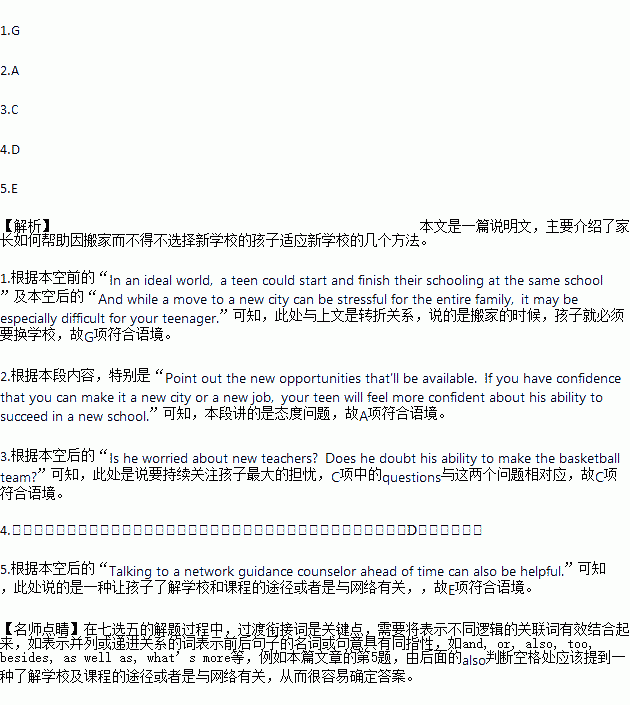题目内容
根据短文内容,从短文后的选项中选出能填入空白处的最佳选项。选项中有两项为多余选项。
Ways to Help Your Teen Adjust to a New School
In an ideal world, a teen could start and finish their schooling at the same school.1.. And while a move to a new city can be stressful for the entire family, it may be especially difficult for your teenager. Use these strategies to help your teen adjust to a new school.
2.
The adjustment period begins before your teen ever steps foot into the new school. Point out the new opportunities that’ll be available. If you have confidence that you can make it a new city or a new job, your teen will feel more confident about his ability to succeed in a new school.
Listen to your teen’s concerns
If you don’t have an open relationship with your teen currently, now it is the time to build one. It’s easiest to get him to open up when he’s feeling unsure. 3..Is he worried about new teachers? Does he doubt his ability to make the basketball team?
Talk about your reasons for moving
4.. If you’re preparing for a better career opportunity, or you need to find a new house because you can’t afford to stay where you are, talk about it.
Learn about the new school ahead of time
Conduct as much research as possible about the new school before your teen starts attending. Get your teen to find out about the size of the school and the types of classes offered.5..Talking to a network guidance counselor ahead of time can also be helpful.
A. Keep a positive attitude
B. Develop your teen’s different abilities
C. Keep asking questions about his biggest concerns
D. Be honest with your teen about why you’re moving
E. Most schools have websites that offer a wealth of information
F. Joining a club or playing a sport can be a great way for your teen
G. However, when a family must move, a teenager must switch schools

